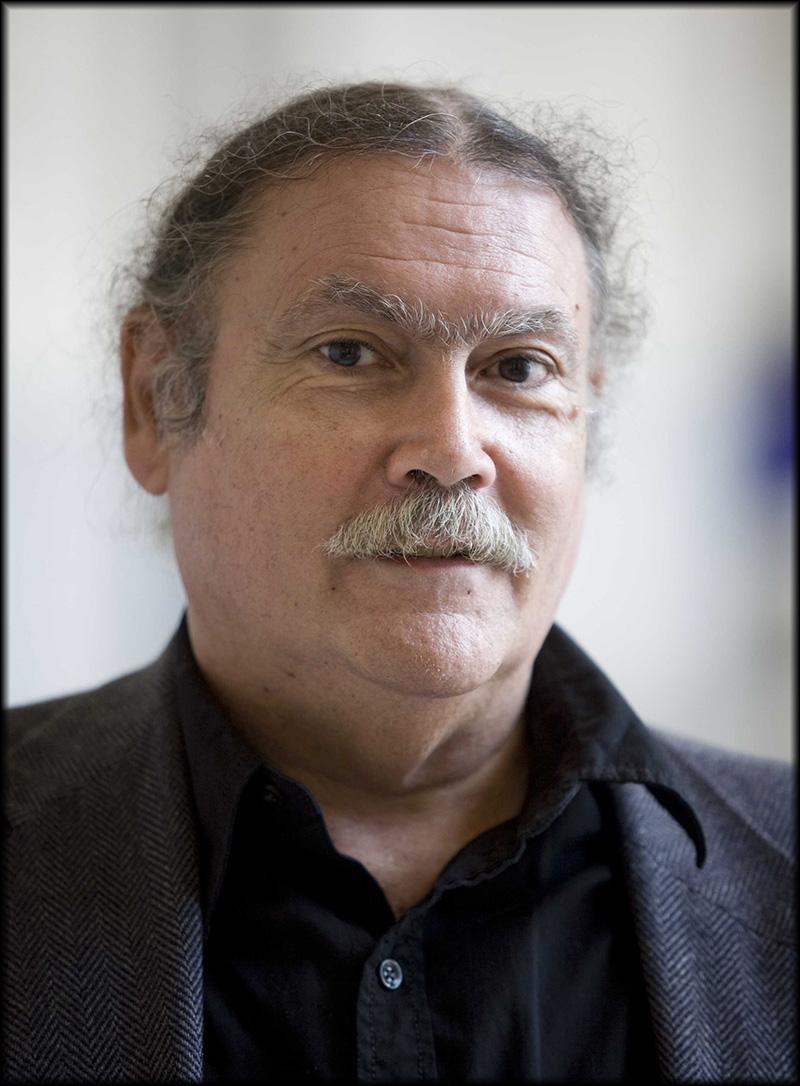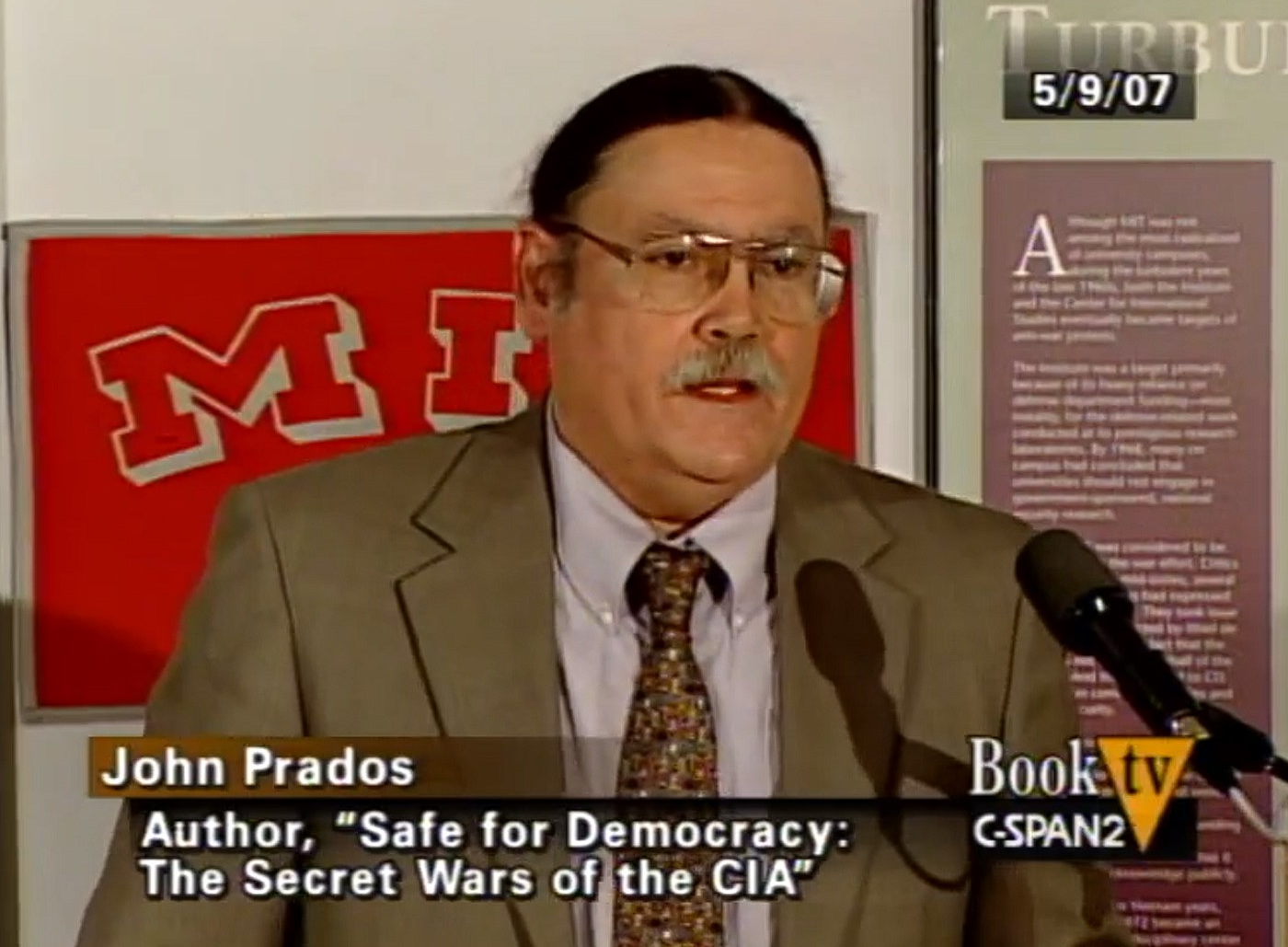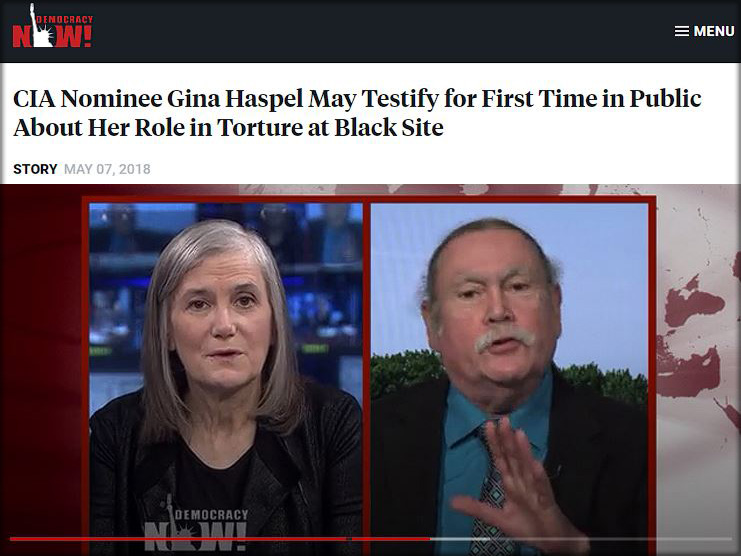Washington, D.C., November 30, 2022 - We are deeply saddened to announce the passing yesterday of National Security Archive senior fellow Dr. John Prados, a celebrated military and intelligence historian who ranks as one of the founders of the Archive.
His willingness, even eagerness, to share document treasures he had found in the early 1980s reinforced the idea first put forward by journalists Scott Armstrong and Ray Bonner of the need to create an institutional memory for U.S. national security documents. With Jeffrey Richelson and a handful of other spy watchers, John convened the SI-TK-BYEMAN group, when those codewords were so secret that any government employee with a clearance had to leave the room when John said the name of the group.
A prodigious author and researcher, John leaves behind a whole bookshelf of highly informed, well documented volumes covering military and intelligence history from the battle of Leyte Gulf in World War II, through Dien Bien Phu, the entire Vietnam War, the invasion of Iraq, and so much more—including a before-its-time collection (on CDs) of presidential recordings from Roosevelt through Nixon. John also edited a number of well-received, major document compilations in our own Digital National Security Archive series, especially covering Vietnam and the history of the CIA.
Among his 27 books, several of them translated into French, a highlight was his biography of William Colby, which argues that the CIA director’s accommodating approach to congressional investigations in the 1970s of Agency wrongdoing actually saved the CIA, in stark contrast to the CIA veteran community, which has been deeply critical of Colby for giving away the “family jewels.” John even argued that Colby didn't go nearly far enough but also said that saving the CIA wasn't necessarily a good thing for democracy anyway.
John was a self-described “man of the 60s” who swam against many currents. He practically invented the title “independent scholar,” not least because in multiple periods of his life he earned his living less from his books and teaching than—remarkably—from designing war games, another indication of his wide-ranging interests and unusual gifts.
Although he would rarely mention his love of gaming, one of his creations, Third Reich (1974), has not only survived the decades, it stands as one of the most popular strategy games of all time, having long since transitioned from the board to digital. Third Reich took an innovative approach to strategic gameplay, combining land, naval and air combat elements while also factoring in important economic calculations and political decision making. “The central idea is that players are national leaders, run their economies, and choose the forces they build and how they conduct operations,” John explained. “My cardinal point was that the complexity of the game should be in the gameplay, not the mechanics of the rules.”
Games of strategy were not only intellectual challenges in themselves for John, they also reinforced his scholarly findings about agency and contingency. Things didn't have to turn out the way they did. Human choice made a difference, while circumstances often ruled.
John was adept at finding ways to communicate that message with impact. At frequent public events featuring notable former officials from the Vietnam era such as Robert McNamara, John could be counted on to calmly fend off any temptations to color the historical record by presenting factual and analytical correctives that were utterly unassailable. Among his uncountable public presentations, he was a key scholar-participant in the historic Brown University-sponsored conference in Hanoi in 1997 where McNamara and a number of other former top U.S. and North Vietnamese decision-makers convened to hash out lessons from the American War.
Fellow historians have already begun registering the loss of one of their most prolific colleagues. James Hershberg, professor at The George Washington University, called him “one-of-a-kind” and an early influence dating back to the 1980s with the appearance of his seminal The Soviet Estimate. Fred Logevall of Harvard remembered him as “a historian’s historian” who “could appear intimidating at the lectern (and from the floor in the Q&A), but underneath was a warm man with a ready smile and a hearty laugh.”
John’s personal qualities absolutely matched his professional attributes. As many of us at the Archive know, he regularly offered his help selflessly to many a younger writer, always tempering his sharp eye with plenty of encouragement. As an Archive fellow, even in the era of telecommuting, he was a willing and contributing, in-person participant at every staff meeting, working group—and happy hour—despite a numbing schedule of writing, teaching, speaking, and other commitments.
Just a couple of weeks ago, John, ever the irrepressible archivist, reminded us that there was still “gold in them thar hills,” referring to the archival treasures still hidden away in U.S. presidential libraries. John will be remembered as the ultimate prospector in the gullies of the documentary gold rush, and his many valuable contributions to national security scholarship, to the gaming community, and as friend and mentor to many, will continue to have a positive impact for years to come.
The entire Archive staff and Board extend our condolences to John's partner, Ellen Pinzur, a long-time member of the Archive family, and to John's beloved daughters Danielle and Natasha.
Publications by John Prados
Dec 27, 2020
Intelligence and Vietnam (II): Return of The Top Secret 1969 State Department Study
Nov 1, 2020
New Light in a Dark Corner: Evidence on the Diem Coup in South Vietnam, November 1963
Oct 9, 2020
Che Guevara and the CIA in the Mountains of Bolivia
Jun 25, 2020
Spying on Americans: Infamous 1970s White House Plan for Protest Surveillance Released
Apr 6, 2020
CIA Covert Operations: The 1964 Overthrow of Cheddi Jagan in British Guiana
Oct 3, 2019
Kennedy and Cuba: Operation Mongoose
Mar 4, 2019
Understanding the CIA: How Covert (and Overt) Operations Were Proposed and Approved during the Cold War
Some of John's media appearances
May 9, 2007
C-SPAN (Book TV): Safe for Democracy
May 7, 2018
Democracy Now! CIA Nominee Gina Haspel May Testify for First Time in Public About Her Role in Torture at Black Site



